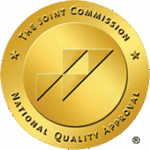At Sabino Recovery, we specialize in trauma-centered care for addiction and mental health disorders. Our unique approach combines both naturopathic and allopathic medicine with evidence-based therapies, including EMDR. By addressing the underlying trauma that often fuels addiction, we help individuals find long-term recovery and emotional healing.
Our EMDR therapy for addiction and mental health disorders is led by licensed therapists who are trained in this specialized modality. Through guided eye movements, sounds, or taps, individuals can process and resolve traumatic memories that may be driving their substance use disorder.
If you or a loved one is struggling with addiction or mental health issues related to trauma, our residential rehab in Arizona offers effective, trauma-focused treatment. Contact us today to learn more about our EMDR program and other evidence-based modalities designed to support comprehensive recovery.


What is Eye Movement Desensitization and Reprocessing (EMDR)
EMDR is a type of therapy used to help people recover from trauma and its emotional effects. Developed by psychologist Francine Shapiro in the late 1980s, EMDR uses bilateral stimulation—such as eye movements, tapping, or auditory cues—while focusing on traumatic memories. This process helps individuals reprocess painful experiences and reduce the intensity of emotional and physical distress associated with them.
During an EMDR session, the therapist guides you through recalling a traumatic memory while applying bilateral stimulation. Unlike traditional talk therapy, EMDR emphasizes the body’s response to trauma and aims to reprocess the memory, making it less distressing over time. This approach has been proven effective for a range of conditions, including post-traumatic stress disorder (PTSD), anxiety, depression, and addiction.
EMDR’s unique ability to address both emotional and physical symptoms of trauma makes it particularly useful for individuals struggling with co-occurring disorders like addiction. By helping to resolve traumatic memories, EMDR can reduce the emotional triggers that lead to substance use and mental health issues.
What Are the Phases of EMDR Therapy?
EMDR therapy is structured around eight phases designed to help individuals process traumatic experiences contributing to their addiction or mental health struggles.
- Preparation: Building trust, explaining EMDR therapy, and teaching coping techniques to manage emotional distress.
- Assessment: Identifying target memories, associated negative beliefs, and desired positive beliefs, along with evaluating emotional and physical responses.
- Desensitization: Using bilateral stimulation to reduce distress linked to the target memory.
- Installation: Strengthening the positive belief connected to the reprocessed memory.
- Body Scan: Addressing any lingering physical discomfort related to the memory.
- Closure: Bringing the client back to emotional equilibrium at the end of each session.
- Reevaluation: Reviewing progress in subsequent sessions and identifying any remaining trauma for continued work
EMDR helps individuals confront and heal from past trauma, which may be a driving force behind addiction. By reprocessing these memories, individuals can achieve greater emotional balance, reducing their need for substances as a coping mechanism.
Benefits of EMDR in Addiction Treatmen
Benefits of EMDR in Addiction and Mental Health Treatment
EMDR offers numerous benefits to individuals struggling with addiction and co-occurring mental health disorders:
- Reduction of trauma-related symptoms: EMDR reduces PTSD symptoms that often contribute to substance abuse, such as panic attacks or flashbacks.
- Decreased cravings and urges: By resolving the emotional roots of addiction, EMDR reduces the intensity of cravings for drugs or alcohol.
- Improved emotional regulation: EMDR helps individuals develop better emotional coping mechanisms, making it easier to manage stress without turning to substances.
- Reduction in anxiety and depressive symptoms: EMDR alleviates anxiety and depression, which are common co-occurring disorders in addiction.
- Resolving underlying traumatic memories: EMDR addresses the traumatic events fueling addiction, helping individuals achieve lasting recovery.
- Increased self-efficacy and motivation: As individuals reprocess their trauma, they often gain a stronger belief in their ability to maintain sobriety and improve their lives.

Nationally Recognized & Accredited




Contact our Admissions Team Today
EMDR and Substance Abuse
EMDR has been shown to be effective in treating substance use disorders and unresolved traumas as dysfunctional behaviors, such as substance abuse, can often be traced back to underlying trauma. EMDR therapy helps patients process and resolve these traumas, leading to a reduction in the urge to use drugs or alcohol.
This modality is especially effective in helping individuals heal from addiction when combined with other forms of therapy, such as cognitive-behavioral therapy (CBT) or dialectical behavior therapy (DBT). These therapies can help patients develop coping mechanisms for dealing with mental illness that may contribute to substance use.
EMDR therapy can also be used to treat mental disorders that often co-occur with addiction, such as anxiety and depression. By addressing these underlying mental illness issues, patients are better equipped to maintain sobriety.


EMDR and Mental Health
Many mental health disorders, such as anxiety, depression, PTSD, and complex trauma, can stem from unresolved traumatic experiences. EMDR therapy offers a highly effective method for addressing these underlying issues, helping individuals process and heal from painful memories that may be fueling their mental health struggles.
By using bilateral stimulation to target and reprocess traumatic memories, EMDR reduces the intensity of negative emotions and physical responses linked to these experiences. This process can help alleviate symptoms of mental health conditions like panic attacks, flashbacks, or chronic stress, which often disrupt daily life.
When combined with other therapeutic approaches, such as cognitive-behavioral therapy (CBT) or dialectical behavior therapy (DBT), EMDR enhances the overall effectiveness of mental health treatment. These therapies work together to address both the cognitive and emotional aspects of mental illness. Resolving trauma while developing coping mechanisms for ongoing mental health challenges leads to improved emotional regulation, reduced distress, and a more balanced mental state.
EMDR’s ability to treat trauma-related mental health disorders can greatly improve an individual’s quality of life, offering long-term relief from symptoms and supporting better emotional well-being.

I am so happy that I chose Sabino to begin my recovery. I have suffered for years from depression, anxiety, panic disorder, and PTSD. The programs that are offered here at Sabino have been truly phenomenal in helping me recover. I also appreciated the professional staff that are here on duty 24/7, which helps create a safe environment. Sabino Recovery uses effective “one on one” methods that meet each person’s individual needs because they evaluate and have a better understanding of your personal traumatic experiences. Thanks Sabino, I am truly grateful to you and the sabino family.
EMDR and Comprehensive Care at Sabino Recovery
At Sabino Recovery, our approach to addiction and mental health treatment is holistic, targeting the root causes of addiction and distress. We utilize evidence-based therapies like EMDR alongside other modalities to ensure comprehensive care. Each resident undergoes a thorough assessment to create a treatment plan tailored to their individual needs.
Our dual diagnosis facility focuses on treating both addiction and co-occurring mental health conditions, with a strong emphasis on trauma resolution. We offer individual, group, and family therapy, ensuring that all aspects of recovery are addressed. Our treatment includes 50 individual therapy sessions within 35 days, and group therapy sessions are limited to eight participants for a more personalized experience.
Continuing care is an essential part of our program, and we begin aftercare planning early in your treatment to ensure long-term success. Additionally, our alumni program offers lifelong support through weekly group calls and reunions, all free of charge.
With Sabino Recovery’s combination of EMDR therapy and other evidence-based approaches, we can help you heal from addiction and build a healthy, fulfilling life.

Heal From Addiction With EMDR Therapy
at Sabino Recovery
Addiction often stems from unresolved trauma or mental health disorders. At Sabino Recovery, our EMDR therapy program addresses both the addiction and the underlying issues contributing to substance abuse. Our experienced therapists provide personalized treatment plans designed to meet your specific recovery needs.
If you’re ready to begin your healing journey, contact Sabino Recovery today. Our team is here to support you in overcoming addiction and reclaiming your life.






